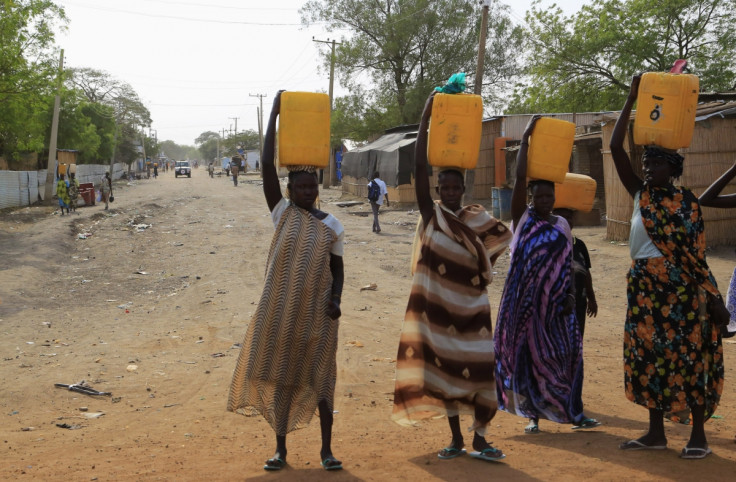South Sudan Conflict: Women on Sex Strike 'Until Husbands Stop Fighting'

South Sudanese women have announced they will deny sex to their husbands, unless they will stop fighting.
The decision was announced after a group of at least 90 female activists, including members of the parliament, met in the capital Juba to discuss possible ways to halt the ongoing conflict.
The South Sudan civil war erupted last December and has resulted in the death of thousands, including women and children.
A key suggestion discussed in the meeting was to "mobilise all women in South Sudan to deny their husbands conjugal rights until they ensure that peace returns", organisers told news agency AFP.
According to another proposal, women should meet with the wives of current president Salva Kiir and rebel leader Riek Machar, to urge them "to join the search for peace and reconciliation by impressing upon their husbands to stop the war".
Conflict in Numbers
4 million people at risk of famine
$1.8bn (£1bn) needed to assist conflict victims and refugees
1.1 million – 1.5 million people displaced
116,989 refugees fled to Uganda since 16 December (UNHCR, 24 June, 2014). Of these:
101,780 women and children (87%)
76,043 children under the age of 18 (65%)
10,000 people killed since December 2013 – UN estimate (June 2014)
Tobias Atari Okori, from the government-backed South Sudan Peace and Reconciliation Commission, said the sex strike suggestion shows that "people were desperate for the war to end.
"People are experiencing great suffering, and it is the women, children and the aged who are suffering the worst," he said.
The conflict in South Sudan started last December when Kiir, from the ethnic Dinka group, fired the then vice-president Machar, an ethnic Nuer, and accused him of plotting to overthrow the regime. Machar denied the allegations and accused Kiir of carrying out violent purges.
The accusations sparked violence among the two ethnic groups.
More than 10,000 people have been killed and at least four million are at risk of a man-made famine due to lack of funds that help NGOs provide basic assistance, such as food and medicine.
Several NGOs have accused both sides of committing crimes against humanity including mutilation, rape and extrajudicial executions.
Kiir and Machar reached a ceasefire deal in February, but this failed to stem the violence as fresh fighting broke out shortly after. Another ceasefire was broken in May.
The warring factions vowed last June to end violence and form a transitional government within 60 days. However, new violence erupted in the country.
A UN report releases in October warned of "rampant" sexual violence in the country, where both factions are said to be raping children as young as two.

© Copyright IBTimes 2025. All rights reserved.





















